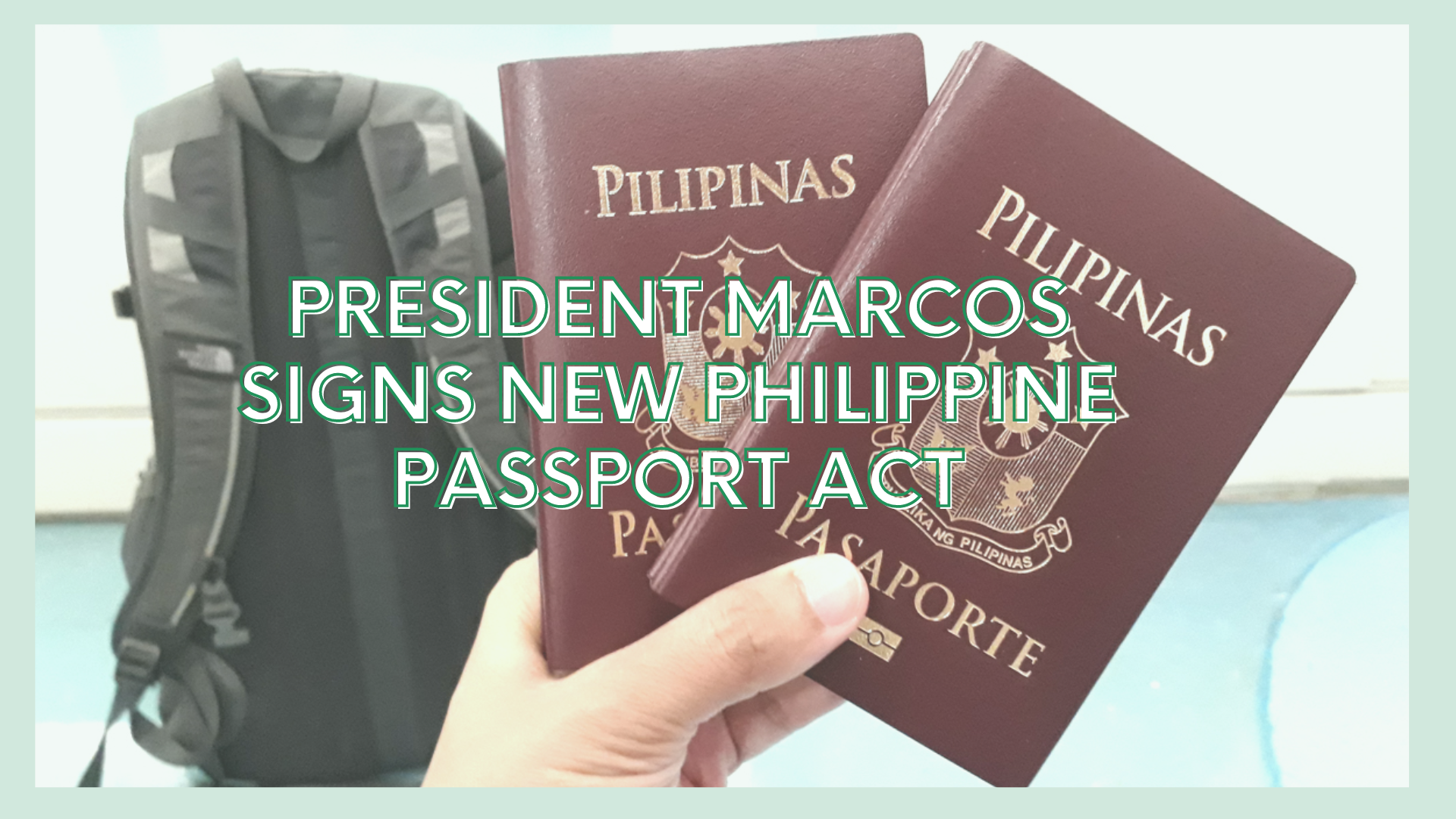OFW Journey, Filipino, OFW, Travel
Modernizing Passport Application Process: Marcos Signs New Philippine Passport Act
PRESIDENT Ferdinand “Bongbong” Marcos Jr. recently enacted the “New Philippine Passport Act,” marking a significant milestone in the modernization of passport application procedures nationwide.
This groundbreaking legislation replaces the outdated Passport Act of 1996 and brings about comprehensive enhancements to the passport issuance system across the country.
According to the Presidential Communications Office (PCO), the primary goal of the law is to improve accessibility and streamline processes, particularly benefiting vulnerable demographics such as senior citizens, overseas Filipino workers (OFWs), and individuals with special needs. This renewed focus underscores the government’s commitment to serving all citizens effectively.
Under Republic Act 11983, which Marcos signed on March 11, the “New Philippine Passport Act” introduces several groundbreaking provisions. Notably, it empowers the Department of Foreign Affairs (DFA) to offer offsite and mobile passport services, extending services beyond traditional consular offices and foreign service posts (FSPs). This move is expected to greatly alleviate the burden on applicants, especially those residing in remote areas.
Furthermore, the DFA is now mandated to provide accommodations for passport applications from various groups, including senior citizens, persons with disabilities (PWDs), pregnant women, minors aged seven years old and below, solo parents, OFWs, and individuals facing emergencies or exceptional cases. This inclusive approach ensures that every Filipino has equal access to passport services.
(READ: New PH Passport Act Advances in Senate)

Penalties
Penalties under the “New Philippine Passport Act” prioritize passport security. Severe penalties are imposed for unauthorized passport handling. Offenders face imprisonment of at least 12 years and fines ranging from P1 million to P2 million. The legislation addresses offenses such as forgery and misuse of passports. Penalties range from six to 15 years of imprisonment and fines from P100,000 to P250,000.
Additionally, the law aims to eradicate unfair practices in passport issuance. It prescribes penalties such as suspension, dismissal, fines of up to P250,000, and a maximum of six years imprisonment.
Despite these stringent measures, the law introduces provisions to streamline processes for legitimate passport applicants. Regular passports will continue to be issued, catering primarily to Filipino citizens ineligible for diplomatic or official passports. Notably, government officials, employees, and their families may hold two passports simultaneously during their tenure in office. This provides added convenience for international travel.
Set to take effect 15 days after its official publication, the “New Philippine Passport Act” represents a monumental step towards modernizing and enhancing passport application processes in the Philippines.
READ NEWS: Here

A multi-award-winning blogger and advocate for OFWs and investment literacy; recipient of the Mass Media Advocacy Award, Philippine Expat Blog Award, and Most Outstanding Balikbayan Award. Her first book, The Global Filipino Bloggers OFW Edition, was launched at the Philippine Embassy in Kuwait. A certified Registered Financial Planner of the Philippines specializing in the Stock Market. A recognized author of the National Book Development Board of the Philippines. Co-founder of Teachers Specialist Organization in Kuwait (TSOK) and Filipino Bloggers in Kuwait (FBK). An international member of writing and poetry. Published more than 10 books. Read more: About DiaryNiGracia
Acknowledgements
DISCLAIMER



Peace and love to you.